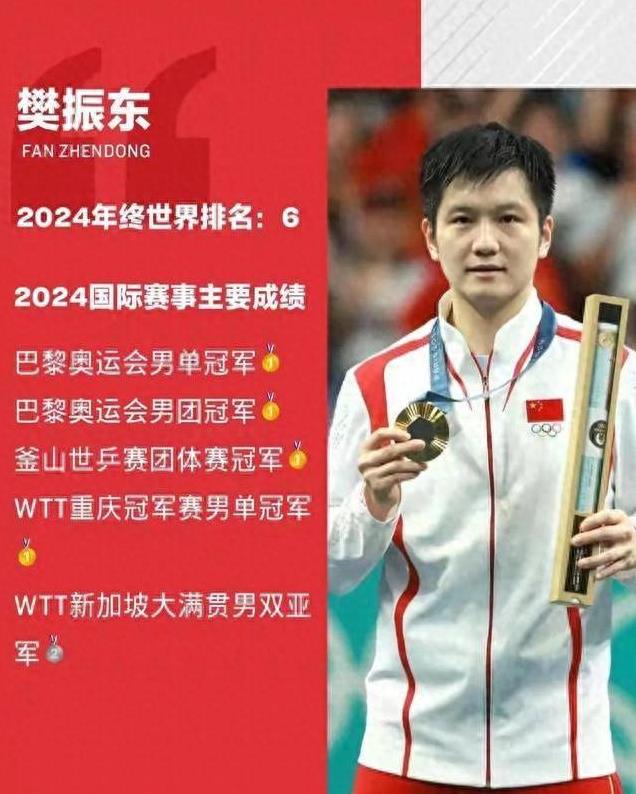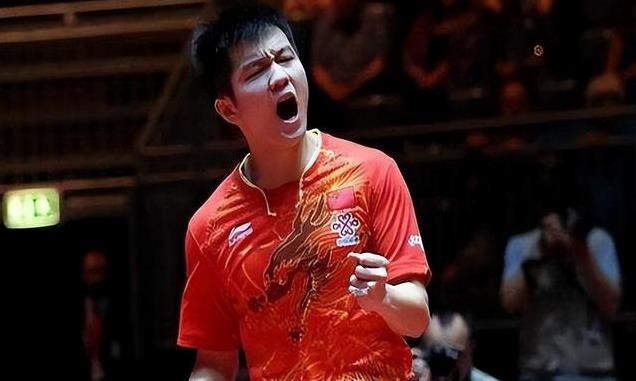Table Tennis Upheaval: Ping Pong Association Chairman Forced to Close Comment Section as Fans Continue to Press

Recently, two heavyweight figures in the Chinese table tennis world, Fan Zhendong and Chen Meng, announced their withdrawal from the WTT world rankings, causing a sensation. This move not only surprised fans but also sparked intense discussions online. The situation escalated when WTT announced fines of $5000 each for the two athletes.

What triggered this withdrawal? Why did two Olympic champions at the peak of their careers choose to exit the world rankings that symbolize honor and status? The official explanation was "physical exhaustion and an unbearable burden." Indeed, high-intensity training and competitions keep athletes' bodies in a state of overwork, with injuries and mental stress constantly looming.

Fan Zhendong's response was intriguing: "I am truly unable to bear it but still respect the international organization," revealing helplessness and dissatisfaction between the lines. Fans have mixed reactions. Some express understanding and support, believing that athletes' health is more important than rankings; others question their decision, arguing that as national team members, they should prioritize collective interests.

Many netizens are strongly dissatisfied with WTT's fine decision, considering it a secondary harm to the athletes. Known as "East Wind Express," Fan Zhendong is famous for his fierce forehand attacks and is a core member of the men's national team. He has won titles such as the World Table Tennis Championships Men's Singles and the World Cup Men's Singles. Concerns arise that this withdrawal might affect his eligibility for major events or even end his career.

Chen Meng, known as the "Dream Team Captain," has won honors including the Olympic Women's Singles and the World Cup Women's Singles. Renowned for her stable technique and strong mentality, she is the backbone of the women's team. Fans also express regret and concern over her withdrawal.
Facing the surge of public opinion, the chairman of the national table tennis association, Liu Guoliang, had to close the comment section on his personal social media. He once stated that the new Olympic cycle will focus on cultivating young players, interpreted as a signal for the national team's generational transition. Is this truly the end of the Fan Zhendong and Chen Meng era?
This withdrawal incident brings a long-existing contradiction in Chinese sports back to the forefront: how to balance athletes' personal choices with collective interests? On one hand, athletes are human, not machines, and have the right to protect their bodies and health; on the other, they carry the nation's honor and expectations, needing to contribute to the collective.
Perhaps there is no absolute right or wrong in this incident. WTT's rules and penalties have their justifications, and the athletes' choices reflect their helplessness. Finding a balance that protects athletes' rights while maintaining collective interests is a challenge facing Chinese sports.
The withdrawal turmoil continues to ferment, and we await its future direction. It is hoped that relevant departments can listen to the athletes' voices, formulate more humanized rules, allowing athletes to shine for the country while also protecting themselves. This turmoil may also remind us that behind competitive sports lies the sweat, tears, and sacrifices of athletes. We should offer them more understanding and support rather than relentless criticism.